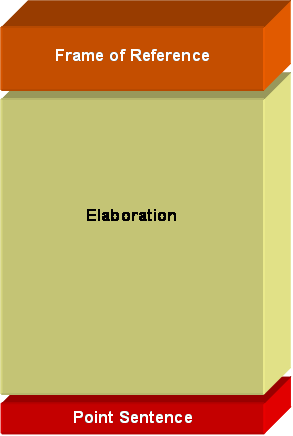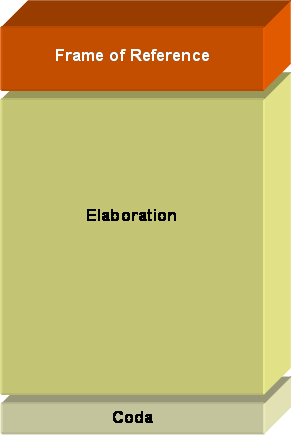The Science Of Scientific Writing Set C Paragraphs with something extra: points and tails Paragraphs that end with a bang! Using maps to write Point-final paragraphs Exercise 1 Exercise 2 Exercise 3 Further ideas on Point-final paragraphs Exercise 4 Paragraphs that are short, or have a tail Final Page.
OVERVIEW: The way to well-written science
PART I: Paragraphs and Sentences
SET A: Paragraphs: The Maps Behind Them
SET B: Paragraphs: Using Maps to Meet Readers' Expectations
SET C: Paragraphs with Something Extra: Points and Tails
SET D: The Generic Section: Expectations and Maps as Blueprints
SET E: Scientific Sections: The Methods and Results
SET F: Scientific Sections: The Discussion
SET G : Scientific Sections: The Introduction
SET H : Sentences
SET I : The Paper as a Whole
PART II: The Paper and its Sections
SET 1: Argument Parts
SET 2: Indicator Words
SET 4: Locating Arguments in Prose
SET 5: Rationale's Essay Planner
SET 6: Evidence in Arguments: Basis Boxes
Synthesis 1: Position-Early Paragraphs
Synthesis 2: Position-Final Paragraphs
Synthesis 3: Writing a Discussion I
Synthesis 4: Writing a Discussion II
Paragraphs with something extra: points and tails

In Set B we saw that readers expect all long paragraphs to start with a Frame of Reference, of one to three sentences in length, and concluding with a Framing Sentence. The remainder of the paragraph is its Elaboration. In Set C we will look at two minor variations of this pattern, where the Elaboration is itself followed by its own concluding sentence that provides content either:

(1) of such significance that we will call it the paragraph's Point Sentence.
(2) of such insignificance (but often considerable style) that it is called the paragraph's "tail" or coda.
Befitting the relative significance of the content they deliver (and their frequency of use) nearly all of this Set will focus on Point Sentences, with only some "throw-away" comments at the end on codas. We will also briefly consider short paragraphs (three sentences or less).
......